Courage in Plain Sight

Recently one of the students I coach said, “I finally got up the courage to speak up in class and my professor and other students actually responded to what I had to say. I’m beginning to like this class.” This conversation spurred my interest in examining the role of courage in learning.
At Accelerated College Experiences (ACE) we dedicate ourselves to guiding students as they build skill in these key areas: Self-Direction, Self-Management, Self-Correction, and Self-Advocacy. These are the essential skills needed to excel in college and in life.
Most of our students come from historically marginalized populations –Students of color, first generation Americans, LGBTQIA, and/or families with limited means. The COVID-19 pandemic has ripped away the proverbial covers to expose discriminatory practices embedded in the systems in health care, education, and places of work. Our students awake each day to learn and grow within environments where many forces act against them. They are not naïve to these challenges, nor are they immune to the anxiety or fear they engender especially in these tumultuous times. Yet, they are inspiring in their willingness to press forward.
Make no mistake about it, our students demonstrate courage in plain sight every day. There are many types of courage and each type has an embedded question. Four types of courage are presented here to illuminate the inter-relationship among ACE’s pillars and the exercise of courage.
Courage: The decision to act in the face of uncertainty, danger, or intimidation.
- Physical Courage – Is it safe?
During the pandemic, students face this question each time they step out of the safety of their homes or student housing. They proactively evaluate options and decide how to mitigate the real health risks, i.e. they wear masks, practice social distancing, etc. This process of taking personal responsibility for their health and following through on the decisions they make are clear examples of the Self-Direction and Self-Management pillars.
2. Political/Moral Courage – Will I speak truth to power?
Political/Moral Courage means doing the right thing for oneself and the greater good. What does a student do, if the professor frequently wonders off track during lectures and gives exams on material never covered? OR what does a student do in a study group when a student is not doing their part on a group project? Moreover, thousands of students are coming of voting age during a contentious time in our nation’s history. How will they vote on issues of healthcare, racial equity, and social justice? Political/Moral Courage is most evident within the Self-Advocacy Pillar.
Speaking up in situations like these are actions that are riddled with real and perceived risks. The fear of being embarrassed or punished by others can silence students from advocating for what they need to learn, or take advantage of new opportunities including voting their conscience on local, state, and national issues. Yet our students learn how to advocate –saying what needs to be said, how to say it, and to take a stand on issues, with the objective to improve outcomes for themselves and others.
3. Intellectual Courage – Can I handle the truth?
Intellectual courage is considering information or points of view not previously held or where one might disagree. For many, the risk of being wrong or the idea that they don’t have all the answers, evokes fear of not being smart enough to excel on intellectual tasks or leadership roles in the classroom, at work or in civic/community organizations. This can result in attempts to ‘look smart’ rather than confronting the truth about what they know and what they need to learn, Intellectual courage is often present in the Self-Correction and Self-Management pillars.
It is important to study graded papers, tests and other forms of evaluation for information about what they’ve mastered and where to put more effort to improve. It is equally important to actively consider differing points of view in order to make effective decisions and act even when the best idea in the room wasn’t yours.
ACE students practice the ‘growth mindset’ to push through fears to stay focused on absorbing the information they need to excel in college and beyond.
“Thegrowth mindset is based on the belief that your basic qualities are things you can cultivate through your efforts. …failure can be a painful experience. But it doesn’t define you. It’s a problem to be faced, dealt with, and learned from. …This view creates a love of learning and a resilience that is essential for great accomplishment” ( Dweck, 2015)
4. Social courage – Will people still like/accept me?
Social courage is sharing a thoughtful opinion without checking with others first. The real risk here is that of being ostracized from the group. For instance, speaking up to say it is not a good idea to go to an off-campus party could result in exclusion from future social gatherings or worse, bullying.
Yet every day, our students use the skills within the Self-Direction and Self-Management Pillars to make and act on decisions that prioritize their studies and appropriately integrate extra-curricular activities, work and family obligations, and social events into their lives.
Recognize and Support Courage in Plain Sight
ACE students don’t ignore their fears, instead they have learned to face them. Using the four pillars helps our students to make an informed decision and mitigate risks. They learn how to say no when they need to; yes, only when they mean it; take the disciplined action necessary to achieve academic excellence; and build rewarding relationships based on trust, mutual respect and support. In the face of uncertainty, they try. In the face of danger, they move. and in the face of intimidation, they stand. They inspire us every day as they demonstrate courage in plain sight. Let’s nurture, support and celebrate it. Our future and the future of our communities is bright because of them.
